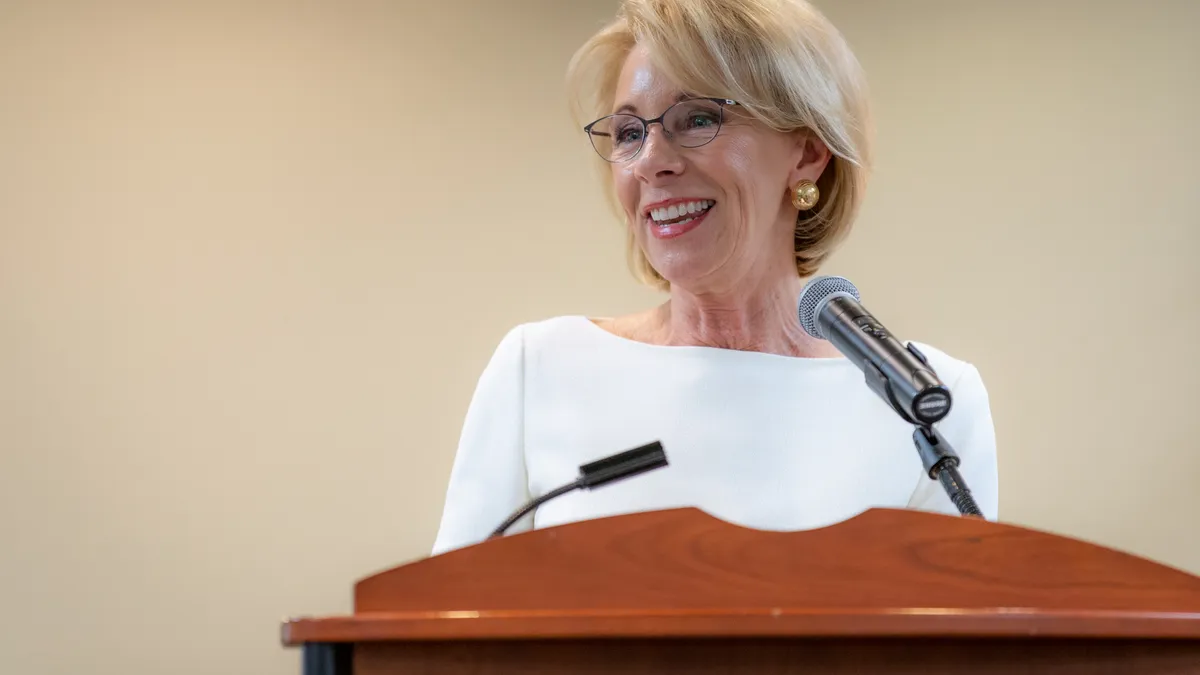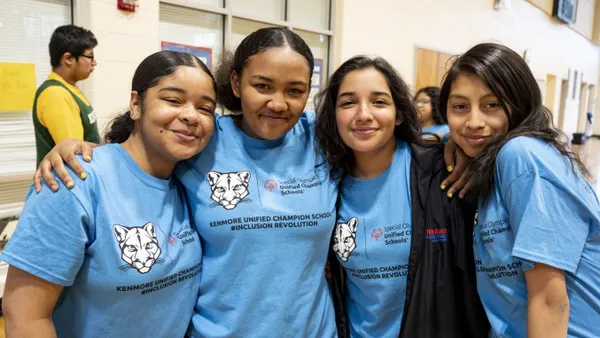Nearly two months after U.S. Secretary of Education Betsy DeVos unveiled her latest school choice-centered proposal, she addressed an audience of hundreds Thursday on why its companion legislation needs to pass in Congress.
Speaking at the 2019 Reagan Institute Summit on Education (RISE) and sitting alongside Texas Republican Sen. Ted Cruz — who introduced Senate Bill 634 at the end of February — DeVos said Education Freedom Scholarships (EFS) "will ultimately mean a better education for more kids."
"We’ve encouraged people to think very broadly about what school choice can mean," she said, calling the initiative "critical in continuing to ... boost the momentum to offer more choice for more kids."
Under the proposal, taxpayers can choose to contribute to the program in exchange for dollar-for-dollar federal tax credits, meant to foster choice, that are capped at $5 billion annually. The credits would be for private donations to scholarship-granting organizations, and states could use the funds for dual enrollment, private schools, homeschooling and more.
With the Trump administration staunchly supporting school choice — among other pro-choice requests, the president's proposed Fiscal Year 2020 Budget asks for $500 million for the federal Charter Schools Program — public opinion has been shifting in favor of expanding students' educational options.
Opposition heats up
The administration continues to face heat from opponents — most notably, congressional Democrats and public school advocates, such as teachers unions, who argue that the measure would take funding away from the traditional school system. And despite the education secretary's defense that it "won't take a single dollar from local public schools, school teachers or public school students," critics say public schools will still be hurt in the end.
Opposition to the plan began within hours of the proposal's initial announcement, when multiple education organizations came out to decry it. In a statement, JoAnn Bartoletti, executive director of the National Association of Secondary School Principals, called the proposal "tone deaf" in "mobilizing behind a scheme to further starve public schools.
And Sasha Pudelski, advocacy director for AASA, The School Superintendents Association, told Education Week it's "ludicrous that the [Trump] administration is willing to redirect $5 billion in federal funding to champion private school voucher schemes that have been proven ineffective in improving academic achievement and fail to serve all students."
The criticism continued Wednesday during a House Education and Labor Committee hearing, during which Ohio Democratic Rep. Marcia Fudge called the EFS program a "shell game" that helps only a portion of students and hurts the public school system as a result.
But despite this dissent, DeVos and Cruz remained optimistic. At the RISE summit, DeVos acknowledged supporters and critics, noting that "the reality is that the people are, more and more, beginning to demand this" but that "we’re continuing to work on raising support for and sponsors of this legislation." Cruz, who called himself a longtime school choice advocate, added, "We have made massive advances, and to continue making massive advances, we need to expand our coalition. ... We need to continue making allies."
Ultimately, the two said, if they want the measure to pass, it needs to garner bipartisan support. Its opt-in element, Cruz said, is one factor that might be appealing to Democrats; that is, giving states an option to participate – or not.
"One has to really ask oneself, 'What is really the role of the federal government long-term in education?'" DeVos said. "I would argue it is the states' prerogative and role to determine what is happening in their states."






 Dive Awards
Dive Awards







